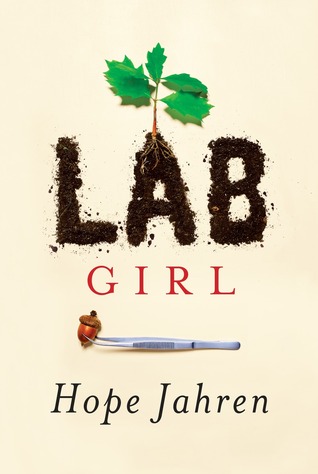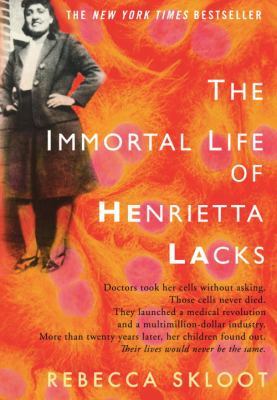Books about Women in Science, Technology, Engineering, and Math
I've mentioned it around the blog, but for my new readers out there, I am currently working on my PhD in Materials Science and Engineering. Ever since I started my program, I craved stories about other women who have experienced a life in STEM. It's always inspiring to read other women's stories as a way to connect and realize that you are not alone.
About a year ago, I started seeking out these stories more actively and stumbled upon a small treasure of books that satisfied this exact craving. It started with Lab Girl by Hope Jahren, and I soon discovered so many books, both fiction and non-fiction, that tell the stories of some amazing women. I thought I would highlight some of my favorites in this very niche genre:
These books include both fiction and non-fiction, so hopefully one of them will pique your interest.
These books include both fiction and non-fiction, so hopefully one of them will pique your interest.
Lab Girl by Hope Jahren
Let's start with the book that started it all. Hope Jahren tells her story, starting with going to her father's physics lab in a small mid-western college as a young girl to how she found her home within the lab. She intersperses her own story with the beautiful story of trees and plants and her passion comes through in the way she writes about them. She doesn't sugarcoat the hard parts of getting a doctorate and running a lab, which I appreciate as I struggle through my own academic journey. Even if you are not a scientist, I would still highly recommend this beautiful memoir of such an amazing woman of our time.
The Radium Girls: The Dark Story of America's Shining Women by Kate Moore
I stumbled upon this book while browsing through the bookstore and it's bright green cover intrigued me into picking it up. I read the inside flap and was hooked. I ended listening to this book on audio, which is actually one of my favorite ways to consume these stories. The Radium Girls tells the story of the young girls Ohio and New Jersey who worked for a large corporation that specially made glow-in-the-dark watches for soldiers away at war. What they didn't know is the paint that the handled on a daily basis glowed in the dark because of a recently-discovered element: radium. It's dangerous properties were not wide-spread knowledge when they started to be used as watch dial paint, but even when the higher-ups did learn that they were effectively poisoning the girls who painted, they did nothing to stop the use of the paint. These girls ended up suffering horrific bodily consequences as a result of the radium, and their stories and lawsuits that they heroically brought forth against the large corporations are the reason we have workplace regulations that are so necessary when dealing with harmful chemicals, which scientist do on daily basis.
Chemistry by Weike Wang
Breaking up the non-fiction with a short fictional account of a woman in her 20s studying at a prestigious university in Boston on her way to get a PhD. The story is told in a stream of conscious narration, which I usually dislike, but fit perfectly with the tone Weika Wang wanted to convey. We get to know our unnamed narrator through her fears, anxieties, and successes as she realizes that it's okay to change paths if you realize the one you thought, or maybe even your parents thought, was your destiny is not the one for you. This story resonated with me because I read it in a time in my academic career when I related so strongly with our narrator. I wish I could have every STEM PhD read this story because I think we could all use a story that reminds us that we are not alone and that we are not failures if we realize that academia is not for us, and that it doesn't make us any less of a scientist or a person if we decided to leave.
The Immortal Life of Henrietta Lacks by Rebecca Skloot
This book isn't quite like the rest, in that Henrietta Lacks never knew the impact she had on the scientific field of disease research. Lacks was a black woman living in Baltimore in the 1950's whose cells were taken during a cancer biopsy and used without her consent for research. At the time, researchers were not able to sustain living human cells, but somehow Henrietta's cells, called HeLa for short, would continue to live on. Her cell line is still used to this day, but their use in research raises ethical concerns that are still rarely questioned. Rebecca Skloot pens an interesting narrative about Henrietta and her family, as well as the impact she continues to have to this day.
The Girls of Atomic City: The Untold Story of the Women Who Helped Win World War II by Denise Kiernan
My most recent read tells the story of the young women who were the very first people to work at what today is known as Oak Ridge National Lab. This enormous laboratory started out as a secret compound that worked toward building the nuclear bomb used at the tail end of WWII. We learn the stories of girls from all types of backgrounds -- a young farm girl from rural Tennessee, a statistician who dreamed of becoming an engineer but was denied entry into an engineering program because "women cannot possibly by engineers", a mother who left behind her children in hopes of earning more money. All of these women, unknowingly, worked toward one of the biggest scientific endeavors of the 20th century. Even as a scientist, I never knew the details of the story of the creation of the atomic bond, and more importantly, how important these women were to that story.
Whew, that was longer than I anticipated! I hope I may have inspired you took read a new book that isn't generally popular in the larger book community. Are there any niche genres that you like to read? Do you have any recs for me? Let me know in the comments!








These look so good! I love books about women in STEM, and I'd never heard of most of these. I'll have to read The Girls of Atomic City soon though, since I'm looking into working at Oak Ridge National Laboratory starting in August! Great post :)
ReplyDeleteThat's awesome! Some of my lab mates have done research at Oak Ridge but I've never been myself. I'm glad you enjoyed my recommendations!
ReplyDelete